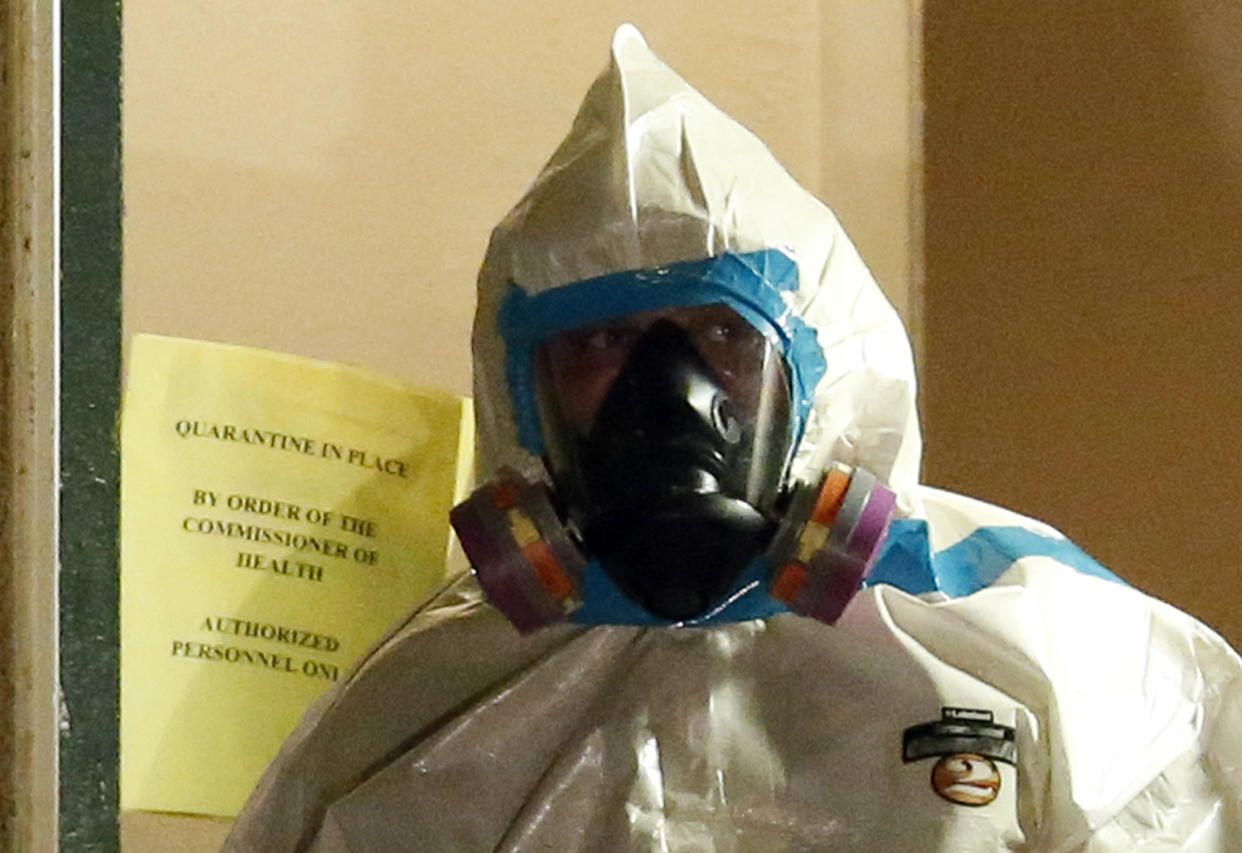CDC's Frieden: 'Definite signs of progress' in the fight against Ebola

"Definite signs of progress" are emerging in the fight against Ebola in West Africa, said the head of the U.S. Centers for Disease Control and Prevention, and efforts to keep the virus from spreading in this country appear to be working.
On Monday, CDC Director Dr. Tom Frieden said Thomas Eric Duncan, the Liberian man who last week became the first patient diagnosed with Ebola in the United States, remains "critically ill" in isolation in a Dallas hospital, but that those he came into contact with have not shown symptoms of the deadly virus.
"The efforts of the state of Texas and CDC to track the contacts have been very well done," Frieden said on "CBS This Morning," in one of several interviews he gave to morning talk shows. "Every contact was identified and measured for temperature yesterday. None of them have symptoms or fever. And we are confident that if there are any secondary cases there, we can stop the chain of transmission."
Frieden was scheduled to brief President Barack Obama on the CDC's progress later Monday.
"What's encouraging is that there are signs of progress in the outbreak," Frieden said. "There are no more cases in Nigeria — looks like they've stopped it. We've now trained 4,000 people in these areas [in West Africa] to fight Ebola, and we're seeing the first training here in the U.S. — 60 people are going through training ... And we're going to see those people deployed to Africa and join hundreds of people around the world who are responding to the outbreak."
According to the World Health Organization, there have been 7,469 reported cases of Ebola in West Africa, and 3,431 deaths attributed to the virus.
Frieden and Obama are expected to discuss options to stop Ebola spreading to the United States through air travel, including enhanced screenings at U.S. airports. On CNN, Frieden was asked if stopping flights to and from West Africa was one of them.
Frieden said such a plan would hinder efforts to get aid to West Africa to stop the deadly outbreak, and prevent Americans with dual citizenship from flying home.
"Most of the people leaving those countries have the right to leave," he said. "They are American citizens. They are people with dual citizenships. They are people who are traveling to other parts of the world, and airlines aren't going to fly one way. They are going to have to have travelers in both directions if they're actually going to keep flying. If you isolate these countries, the governments will get less stable and the ability to stop the outbreak there I think will be very problematic."
Frieden's comments came as Ashoka Mukpo — an American freelance cameraman who contracted Ebola while covering the outbreak in West Africa — arrived in Nebraska for treatment on a specially equipped plane. Mukpo is the fifth American to be diagnosed with Ebola since the outbreak began.
Related video:



